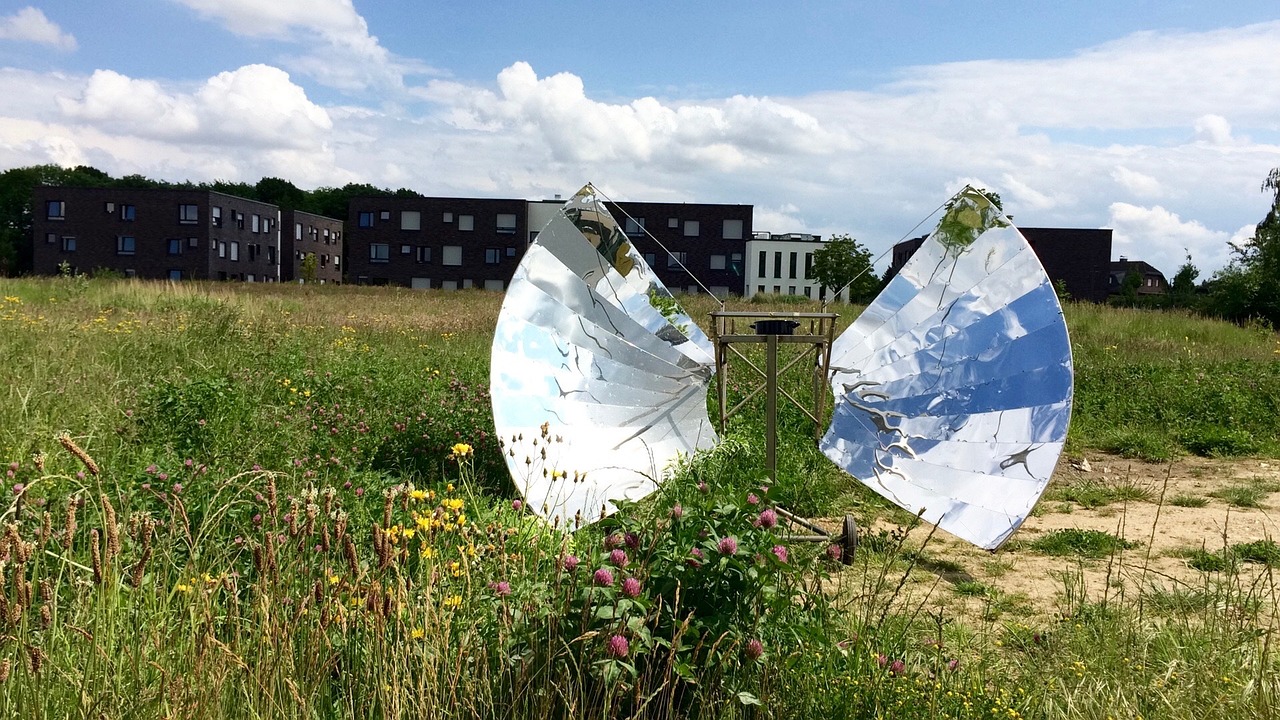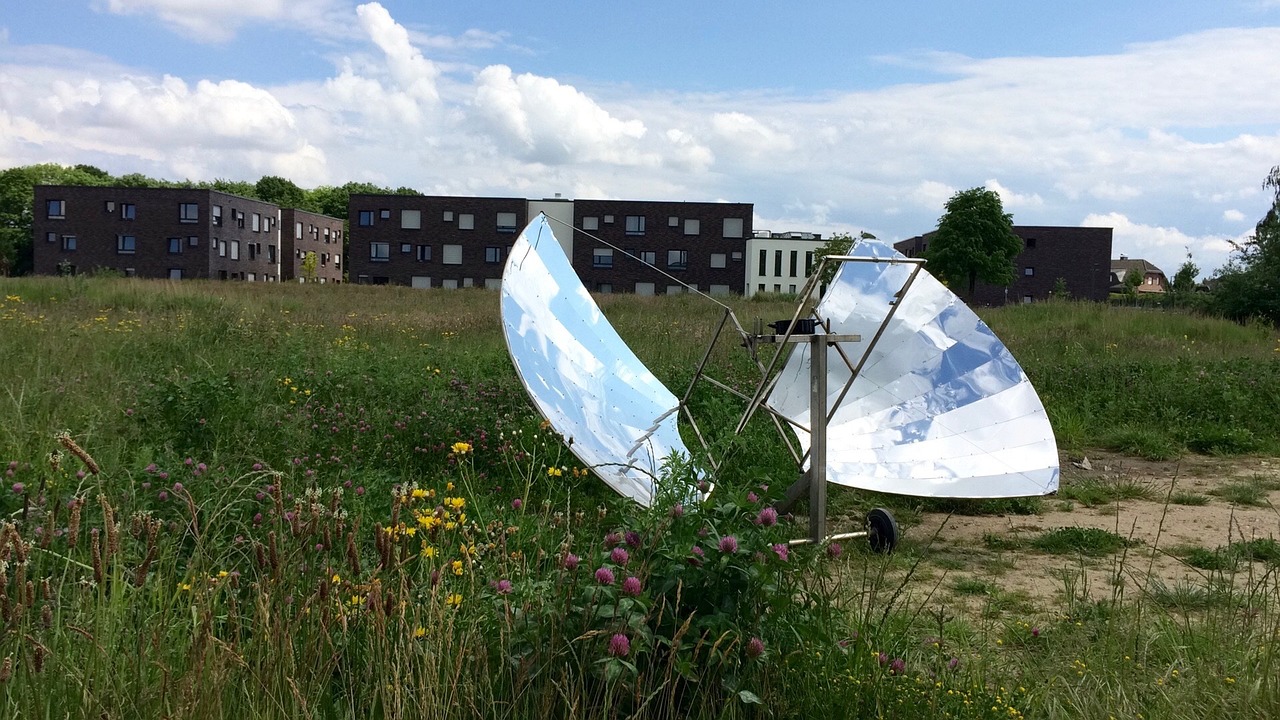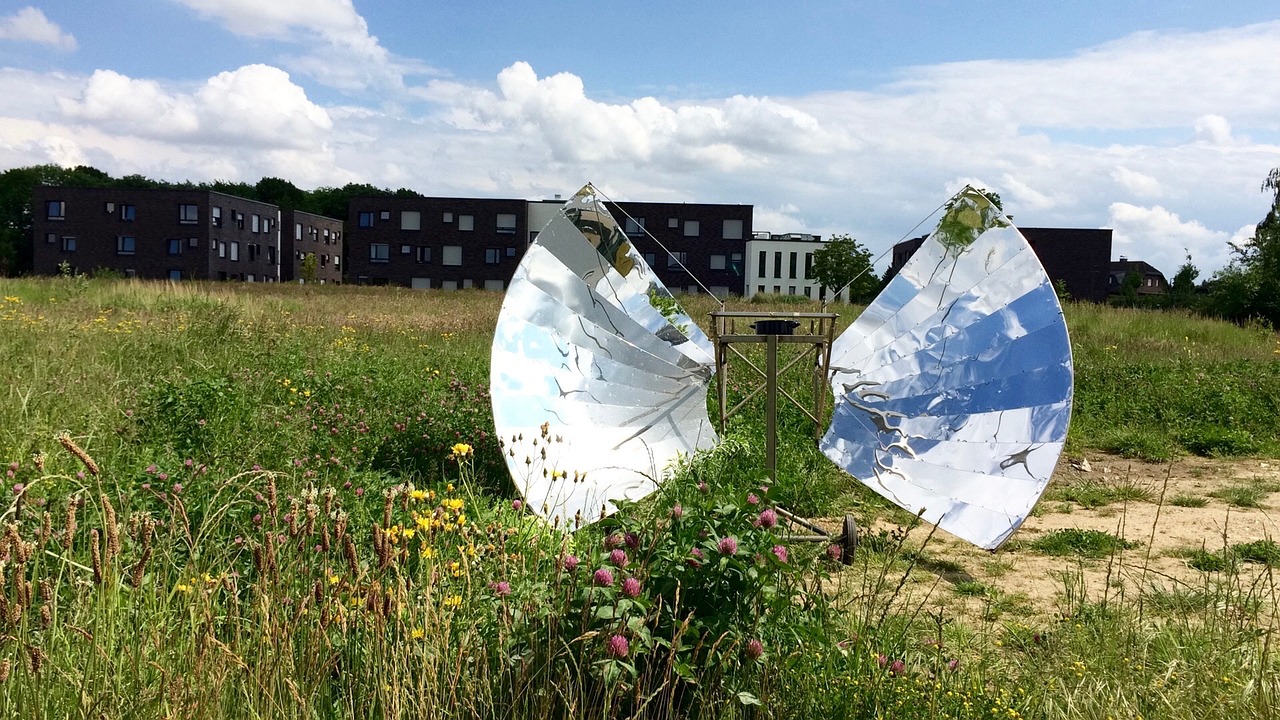Imagine a life without relying on gas or electricity to cook your meals. Instead, picture harnessing the limitless power of the sun to effortlessly prepare your food. In this article, we explore the world of solar cookers and their incredible benefits for off-grid living. From their eco-friendly nature to their convenience and versatility, solar cookers have revolutionized the way we cook and eat, all while reducing our carbon footprint. Join us as we uncover the wonders of cooking with the sun and discover how these innovative devices have the potential to transform our kitchens and our planet.
Benefits of Solar Cookers
Environmentally friendly
Solar cookers are a sustainable and environmentally friendly way to prepare meals. By harnessing the power of the sun, solar cookers eliminate the need for traditional cooking fuels such as gas or electricity, thus reducing carbon emissions and air pollution. Using solar cookers helps to mitigate the effects of climate change and contribute to a cleaner, healthier environment.
Cost-effective
One of the major advantages of solar cookers is their cost-effectiveness. Once you have invested in a solar cooker, there are no ongoing fuel costs. With the sun providing free energy, you can save significant amounts of money on cooking expenses. This is especially beneficial for those living off-grid or in areas where conventional cooking fuels are expensive or hard to come by.
Healthier cooking
Solar cookers offer a healthier cooking alternative compared to traditional methods such as cooking on open fires. When cooking with solar energy, the harmful emissions from burning fuels are eliminated, resulting in cleaner indoor air quality. Solar cooking also helps retain the nutrients in food, resulting in healthier meals. Additionally, the low-temperature cooking method used in solar cookers minimizes the formation of harmful byproducts like acrylamide, which can be produced during high-temperature cooking.
Reliance on renewable energy
Solar cookers rely on renewable energy sources, such as sunlight, which are freely available and abundant. This reduces our dependence on finite energy resources and helps create a more sustainable future. With solar cookers, you can harness the power of the sun to cook your meals while minimizing your carbon footprint and contributing to a greener planet.
Reduced fire hazards
Traditional cooking methods, such as open fires or gas stoves, pose a significant risk of fire hazards. Solar cookers eliminate these risks as they do not require an open flame or combustible fuels. This makes them a safer option, especially in areas with limited access to firefighting resources. Solar cookers provide a reliable and fire-free cooking solution, giving you peace of mind while preparing meals.
Types of Solar Cookers
Box cookers
Box cookers are the most common and versatile type of solar cookers. They consist of an insulated box with a transparent lid or cover, typically made of glass or plastic. The box is designed to capture and retain the sun’s heat, creating a greenhouse effect. This type of solar cooker is ideal for slow cooking or baking and can reach temperatures of up to 300 degrees Fahrenheit. Box cookers are easy to build or purchase and are suitable for a variety of cooking styles.
Panel cookers
Panel cookers, also known as solar ovens or flap cookers, are lightweight and portable. They consist of multiple reflective panels arranged to focus sunlight onto a central cooking area. These cookers are highly efficient and can reach temperatures of up to 400 degrees Fahrenheit. Panel cookers are foldable and easy to store, making them ideal for camping trips or outdoor activities.
Parabolic cookers
Parabolic cookers are the most powerful and efficient type of solar cookers. They consist of a parabolic-shaped reflector that concentrates sunlight onto a small cooking area at the focal point of the reflector. Parabolic cookers can reach extremely high temperatures, often exceeding 600 degrees Fahrenheit. They are ideal for fast cooking, such as frying or boiling, and can be used to cook multiple dishes simultaneously.

How Solar Cookers Work
Principles of solar cooking
Solar cookers work on the principle of converting sunlight into heat energy. The sun’s rays are concentrated or trapped within the cooker, causing it to heat up. The heat is then used to cook food placed inside the cooker. Different types of solar cookers use various methods to capture and retain this heat energy.
Components of a solar cooker
Solar cookers typically consist of three main components: the reflector, the cooking vessel, and the insulation. The reflector directs sunlight towards the cooking vessel, while the insulation helps trap the heat inside the cooker. The cooking vessel, usually made of dark-colored materials, absorbs the heat and transfers it to the food.
Heat transfer in solar cookers
Solar cookers utilize three mechanisms of heat transfer: conduction, convection, and radiation. Conduction occurs when the heat is transferred from the hot surface of the cooker to the cooking vessel through direct contact. Convection involves the movement of heated air or steam within the cooker, evenly distributing the heat. Radiation is the process by which the absorbed sunlight is converted into heat energy.
Choosing the Right Solar Cooker
Considerations for off-grid living
When choosing a solar cooker for off-grid living, it’s important to consider factors such as the availability of sunlight, cooking capacity, and portability. Assess the amount of sunlight your location receives throughout the year to determine the effectiveness of solar cooking. Additionally, consider the number of people you typically cook for and choose a cooker that can accommodate your needs. If you plan to travel or move frequently, opt for a portable and lightweight solar cooker.
Size and capacity
Solar cookers come in various sizes and capacities, ranging from small portable cookers to larger cookers suitable for family-sized meals. Consider your cooking requirements when choosing the size and capacity of your solar cooker. If you often cook for a larger group or family, a larger cooker with a higher cooking capacity would be more suitable. For individual use or smaller portions, a smaller cooker should suffice.
Cooking methods
Different solar cookers are designed for specific cooking methods. Some cookers are better suited for slow cooking or baking, while others excel at faster cooking styles such as frying or boiling. Consider the type of meals you typically prepare and choose a solar cooker that aligns with your preferred cooking methods. If you enjoy a variety of cooking styles, a versatile cooker that can accommodate different techniques would be beneficial.
Weather conditions
The weather conditions in your area can influence the effectiveness of solar cooking. Assess the average weather patterns, including the number of sunny days and potential cloud cover, to determine if solar cooking would be viable in your location. Some solar cookers may perform better in certain weather conditions, while others may require additional adjustments or accessories.

Tips for Using Solar Cookers
Orientation and positioning
Proper orientation and positioning of the solar cooker are crucial for optimal performance. Place the cooker in direct sunlight, ensuring that it is facing the sun at all times. Regularly adjust the position of the cooker to maximize sun exposure, especially during longer cooking times. Consider the movement of the sun throughout the day and adjust the cooker accordingly to maintain optimal heat absorption.
Preheating the cooker
Preheating the solar cooker can help shorten cooking times and ensure even heat distribution. Leave the empty cooker in the sun for about 15-30 minutes before placing the food inside. This allows the cooker to reach the desired temperature, reducing the overall cooking time. Preheating also helps prevent temperature fluctuations during the cooking process.
Cooking times and temperatures
Solar cookers generally require longer cooking times compared to conventional methods. Plan your cooking accordingly, allowing for the extra time needed. Experiment with different recipes and adjust the cooking times based on your solar cooker’s performance and the desired results. Use a food thermometer to ensure that the internal temperature of the food reaches safe levels for consumption.
Safety precautions
While solar cookers are generally safe to use, it’s important to follow safety precautions. Use oven mitts or heat-resistant gloves when handling hot cookers or cooking vessels. Keep children and pets away from the solar cooker to avoid accidents. Avoid looking directly at the sun or the concentrated sunlight reflected by the cooker, as it can cause eye damage. Always exercise caution and common sense when using any cooking appliance.
Recipes for Solar Cooking
One-pot meals
Solar cookers are perfect for cooking one-pot meals such as stews, soups, and casseroles. Simply add the ingredients to a dark-colored cooking vessel, place it inside the solar cooker, and let it cook slowly under the sun’s heat. These meals are easy to prepare, require minimal supervision, and result in flavorful, tender dishes.
Slow-cooked dishes
Solar cookers excel at slow cooking, making them ideal for dishes like pulled pork, braised meats, and curries. The low and consistent temperatures in a solar cooker allow for long, slow cooking, resulting in tender and succulent meat. Solar slow cooking can be done throughout the day, so you can set it up in the morning and return to a delicious meal in the evening.
Baking and roasting
Solar cookers can also be used for baking bread, cookies, and even roasting vegetables. The even heat distribution within the cooker ensures consistent baking results. Use dark baking pans or cover the food with a lid to retain moisture and prevent burning. Solar baking is a fun and sustainable way to enjoy fresh homemade bread and treats.
Vegetarian and vegan options
Solar cookers are perfect for preparing vegetarian and vegan meals. With their gentle cooking method, solar cookers help retain the natural flavors and textures of fruits, vegetables, and plant-based proteins. From roasted vegetables to bean stews and grain salads, the possibilities for vegetarian and vegan solar cooking are endless.
Desserts and treats
Indulge your sweet tooth with solar-cooked desserts and treats. From fruit crisps and cobblers to puddings and cakes, solar cookers can create delicious desserts with minimal effort. Experiment with different recipes and let the sun work its magic to create delightful and guilt-free treats.
Maintenance and Care
Cleaning the solar cooker
Regular cleaning is important to ensure the optimal performance and longevity of your solar cooker. Clean the reflectors or panels regularly to remove any dust or dirt that may obstruct sunlight. Use a mild detergent or soapy water to clean the cooker’s surfaces, ensuring that all residues are removed. Rinse thoroughly and dry the cooker before storing it.
Storing the solar cooker
Proper storage helps protect your solar cooker from damage and extends its lifespan. Ensure that the cooker is completely dry before storing it to prevent mold or corrosion. If possible, store the cooker in a cool, dry place away from direct sunlight. If the cooker is collapsible, fold it properly according to the manufacturer’s instructions to avoid any damage.
Replacing parts
Over time, certain parts of the solar cooker may wear out or require replacement. Check the cooker regularly for any signs of damage or deterioration. Replace any damaged or broken parts promptly to ensure the cooker’s optimal functioning. Contact the manufacturer or supplier for replacement parts or seek professional assistance if needed.
Extending the lifespan
Proper care and regular maintenance can help extend the lifespan of your solar cooker. Protect the cooker from excessive heat, moisture, and harsh weather conditions that can cause damage. Handle the cooker with care to avoid accidental drops or impacts. Follow the manufacturer’s instructions for usage, cleaning, and storage to maximize the longevity of your solar cooker.
Overcoming Challenges
Limited sunlight
While solar cookers require sunlight to function, they can still be used in areas with limited sunlight. Consider placing the cooker in the sunniest spot available, such as an open field or a rooftop. You can also use reflective materials or mirrors to enhance sunlight concentration. Some solar cookers are designed to retain heat, allowing for cooking even during cloudy or partially sunny days.
Inconsistent cooking temperatures
Solar cookers may face challenges in maintaining consistent temperatures, especially during periods of fluctuating sunlight. To overcome this, preheat the cooker for a longer duration before adding the food. Plan your meals accordingly, allowing for adjustments in cooking times. Monitor the cooking process closely and make adjustments as needed to maintain optimal cooking temperatures.
Cooking for larger groups
Cooking for larger groups using solar cookers may require some planning and coordination. Consider using multiple solar cookers simultaneously to accommodate a larger cooking capacity. Opt for cookers with higher capacities or divide the food into smaller portions for efficient cooking. If needed, stagger the cooking process by starting some dishes earlier to ensure all the food is ready at the same time.
Adapting recipes
When using a solar cooker, some recipe modifications may be required to optimize cooking results. Adjust cooking times and temperatures as needed based on the performance of your solar cooker. Experiment with different recipes and cooking techniques to find the best approach for solar cooking. With practice, you can adapt your favorite recipes to the unique conditions and capabilities of solar cooking.
Solar Cooking Safety
Avoiding burns and scalds
When using solar cookers, it’s important to be cautious of potential burns and scalds. Use oven mitts or heat-resistant gloves when handling hot cookers or cooking vessels. Keep children and pets away from the cooking area to avoid accidental contact with the hot surfaces. Avoid reaching into the cooker while it is in operation, as the cooking vessel and the cooker itself can become very hot.
Preventing food contamination
Maintaining proper food hygiene is essential when using solar cookers. Ensure that the cooking vessels and utensils are clean and free from any contaminants before cooking. Monitor the cooking progress to ensure that the food reaches safe internal temperatures to eliminate any potential bacteria or pathogens. Store cooked food promptly to prevent spoilage and discard any leftovers that have been exposed to sunlight for an extended period.
Monitoring cooking progress
Regularly monitor the cooking progress to ensure that the food is being heated to safe temperatures. Use a food thermometer to check the internal temperature of the food, especially when cooking meat or other perishable items. Follow recommended cooking times and temperatures to ensure that the food is thoroughly cooked and safe to consume. Do not leave food unattended for extended periods, especially in hot weather conditions.
Conclusion
Solar cookers offer numerous benefits for off-grid living and sustainable cooking. By harnessing the power of the sun, solar cookers provide an environmentally friendly, cost-effective, and healthier alternative to traditional cooking methods. With different types of solar cookers available, you can choose the right one based on your needs and preferences. By following the tips and recipes provided, you can make the most of your solar cooker and enjoy delicious and sustainable meals. So go ahead, embrace the power of the sun, and explore the world of solar cooking for a greener and more sustainable lifestyle.






